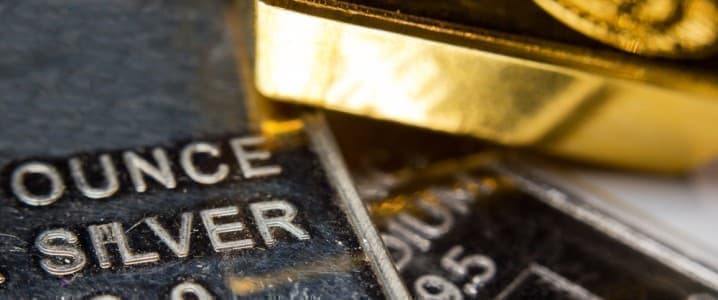The failure of Silicon Valley Bank and Signature Bank reminds us of a very important truth — if you can’t hold it in your hand, you don’t really own it…
That’s why it’s wise to hold at least some of your wealth in hard assets like gold and silver that are in your direct possession or at least stored in a secure, allocated, segregated, and insured storage facility.
The FDIC insures bank deposits up to $250,000. If you have more than that in a financial institution, you could lose everything above that limit if a bank fails.
Depositors at SVB and Signature Bank lucked out. The government has made provisions to cover uninsured deposits. But there’s no guarantee that will happen when the next bank goes under.
And even if you don’t have more than $250,000 in the bank, you could easily find yourself locked out of your account. Just last week, a computer glitch caused money in some Wells Fargo accounts to disappear.
There are also more nefarious reasons you could lose access to funds. The Nigerian central bank recently limited bank withdrawals in order to incentivize people to use its new central bank digital currency. In 2017, India faced cash shortages when the government declared that 1,000 and 500 rupee notes would no longer be valid with just a four-hour notice. And during its crisis, the Greek government shuttered banks and seized some bank deposits.
Most people assume “that can’t happen here” in the US. But as we saw over last week, the US banking system is vulnerable to collapse.
The dirty little secret is US banks don’t hold your money in their vaults. They loan it out to other people. In the US fractional reserve banking system, financial institutions only have enough cash on hand to cover a fraction of their deposits. If too many people show up at the bank to demand their money at the same time, the bank will not have enough funds available to cover all of the withdrawals. This is why bank runs are so dangerous. They can cause a bank to go under.
When you put your money in a bank, you create “counterparty risk.” In a nutshell, it is the risk that a person or institution on the other side of a transaction might not fulfill its obligation – i.e. the bank doesn’t have the money to return your deposit.
Even if you pull all of your money out of the bank and stuff it under your mattress, you still have counterparty risk, as Mises Institute president Jeff Deist explained.
Even if you managed to withdraw all of ‘your’ money in physical cash from banks tomorrow and put it in your well-guarded safe at home, you are still a creditor to the Fed & Treasury. You still hold IOU paper with risk of loss.”
In fact, you’ve suffered significant losses in the value of your dollars over the last two years thanks to rampant price inflation.
Gold and silver carry no counterparty risk. They are tangible assets that you can hold in your hand. They can be bought and sold all over the world. Their value is recognized globally. While the price of gold or silver may fall, it will never fall to zero. Precious metals can’t default on their payments, they can’t commit fraud, and they can’t go bankrupt.
Of course, it’s impossible to lower risk to zero. If you store your gold and silver at home, you could get robbed. If you vault your precious metals, it is possible for that third-party storage entity to commit fraud, get robbed, or be destroyed by an act of God. Nevertheless, the counterparty risk introduced by storing your gold and silver is relatively low compared to the risk of a bank failure or rapidly depreciating fiat currency — especially in the current financial situation.
By Zerohedge.com
More Top Reads From Oilprice.com:
- LNG Market Could Become Too Saturated By 2027
- Goldman Betting On Fed To Skip March Rate Hike
- India’s Opportunistic Pursuit Of Cheaper Oil From Russia


















